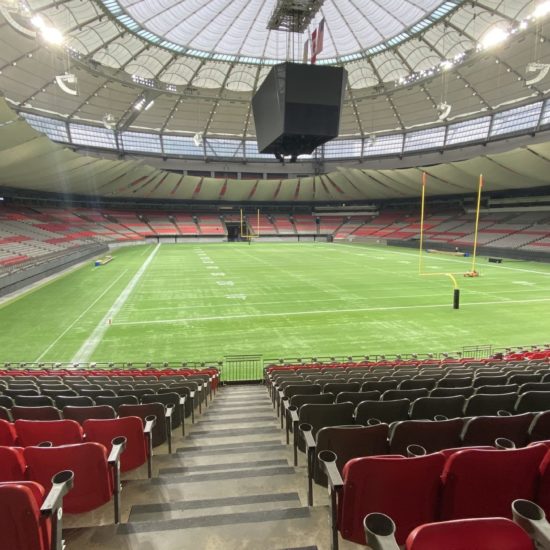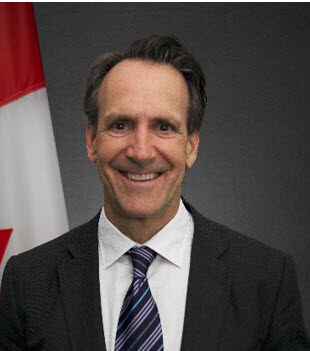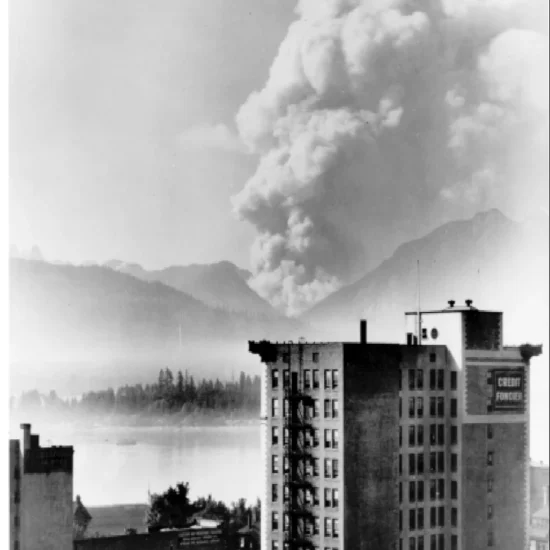
Bob Mackin
An NDP ally’s weekday polling during the first wave of the pandemic built the foundation for John Horgan’s 2020 snap election call prior to the second wave.
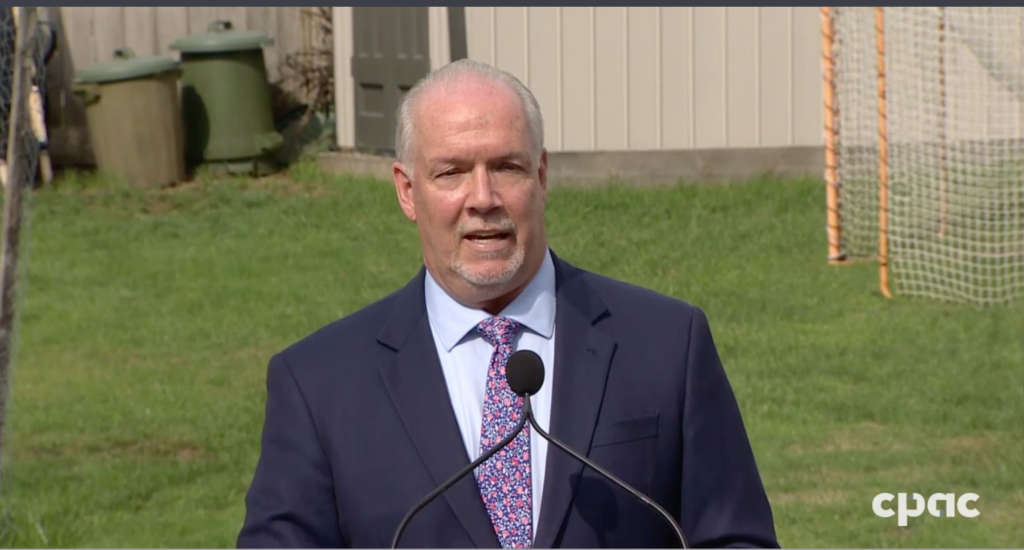
John Horgan announces the election in a Langford cul-de-sac (CPAC)
Strategic Communications Inc., aka Stratcom, scored a $95,000 no-bid contract — given “emergency” status by bureaucrats — to gauge public opinion of the government’s pandemic response and management of issues.
More than two-and-a-half years and an appeal to the Office of the Information and Privacy Commissioner [OIPC] later, the NDP released 6,000 pages that include the key findings and analysis that informed cabinet’s decisions in the spring of 2020 and gave the governing party an undeniable advantage in a snap election that fall.
During the NDP’s first two years in government, Stratcom billed taxpayers $1.1 million for patronage contracts from Government Communications and Public Engagement [GCPE] and the NDP caucus in the Legislature. In the fiscal year that included the snap election, the government paid Stratcom another $285,539.
In an affidavit to the OIPC, in defense of withholding some information from the Stratcom disclosure, former Horgan press secretary Jen Holmwood explained the value of pollsters.
“GCPE works with third-party public opinion research agencies to engage British Columbians and gain insights through qualitative and quantitative methods to aid in the development of marketing and advertising, and gather feedback a variety of topical issues, as well as government policies and programs British Columbians rely on,” said Holmwood, now executive lead for corporate priorities in GCPE. “Strategic Communications Inc. is one of these research agencies.”
The $95,000 contract ran from mid-April through June, just in time for the NDP to start campaign training and a series of telephone town halls to boost the profile of candidates who upset BC Liberals in 2017.
First up, from June 9-24, 2020, digital campaign and fundraising seminars on Zoom, under the banner of “Level Up.” Participants were taught targeting, voter contact and fundraising, and how to recruit volunteers, build digital campaign plans, and program databases.
“In a socially distant election, Facebook advertising will be one of the best ways we can signal boost, extend our reach, and surround people with our core message and ideas they ought to be hearing about,” said the party website. “Social distancing means phone calls are enjoying a renaissance — and that includes fundraising phone calls.”
The day after Level Up ended, a series of telephone town halls began.

NDP held online campaign prep seminars in June (NDP)
GCPE hired Stratcom for six telephone town halls through mid-July, under the banner of “COVID-19 Recovery Ideas.”
“Speak with – and hear from – thousands of your supporters at once,” says the Stratcom telephone town hall website. “This powerful, affordable service allows you to quickly engage thousands of supporters in genuine conversation, making it ideal for communications, donor relations and fundraising. We offer a fast turnaround, making it a great way to respond to timely, controversial or urgent issues, and to reach specific groups of supporters with targeted messages.”
The idea was recovery. In hindsight, it looks very much like the goal was re-election.
GCPE paired cabinet ministers with rookie MLAs from swing ridings. Such as Finance Minister Carole James on July 7, 2020 with Bob D’Eith, the Finance Committee chair who won Maple Ridge-Mission by 325 votes over BC Liberal incumbent Marc Dalton in 2017.
Two days later, Agriculture Minister Lana Popham and Parliamentary Secretary for Seniors Ronna-Rae Leonard. Leonard was the 189-vote winner in Courtenay-Comox over Jim Benninger, who was trying to keep the riding BC Liberal.
Other calls included Ravi Kahlon (Delta North), Lisa Beare (Pitt Meadows), Bowinn Ma (North Vancouver-Lonsdale), Jagrup Brar (Surrey-Fleetwood) and Jinny Sims (Surrey Panorama).
Some of the same backbenchers were among 19 MLAs who combined for $145,000 in printing and mailing costs in the days before Horgan called the snap election. Leonard ($7,500) and Brar ($3,300) were big spenders on mailouts. Kahlon and Ma distributed thousands of non-medical facemasks branded with their names, for $11,650 and $18,600, respectively.
Stratcom CEO Bob Penner is a longtime fellow with the Broadbent Institute, the Ottawa-based NDP-aligned think-tank that publishes the PressProgress website. He is listed as an expert in campaign strategy, fundraising, public opinion polling and voter contact.
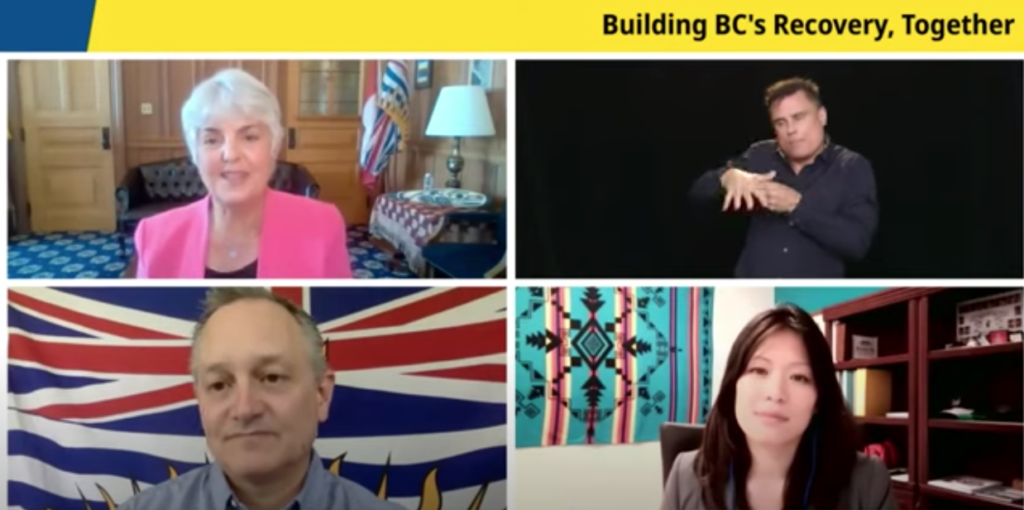
Government telephone townhalls showcased NDP MLAs and test marketed messaging (BC Gov)
According to an August 2013 interview in Direct Marketing, the former Greenpeace fundraising executive Penner owed his success to investor Joel Solomon — the Nashville Democrat who moved to B.C., co-founded Tides Canada and backed organic juice entrepreneur Gregor Robertson’s rise to the mayoralty of Vancouver.
“Like me, Joel is equally interested in the bottom line as well as the social commitment our business provides. He didn’t want much control and was a patient investor who was content with a return over time,” Penner told the magazine.
The union-backed Working Enterprise took a minority stake in Stratcom, helping it become a full-service company that also offers broadcast voice messages (aka robocalls) and automated text messages via SMS and Facebook.
It was instrumental in Vision Vancouver’s hat-trick of city hall majorities from 2008 to 2014, but not every campaign succeeds. Stratcom billed $1.5 million for its work on the failed 2015 plebiscite to convince voters to pay a sales tax to fund TransLink expansion.
Two years later, Horgan came to power in a minority government propped-up by Andrew Weaver’s Greens. Looming behind Horgan on the Government House stage for his swearing-in was David Eby.
On Nov. 18, 2022, the roles were reversed.
While towering over the podium, with his predecessor seated behind him, Eby quipped: “I’m not as tall as I look, because I’m standing on the shoulders of John Horgan.”
Eby’s right-hand man is a former Stratcom president. Chief of staff Matt Smith helped fashion the NDP’s CleanBC environmental strategy and worked on campaigns for Vision Vancouver, the party of that Horgan’s chief of staff, Geoff Meggs, represented on city council for almost nine years.

Stratcom boss Bob Penner and a Vision campaign sign (Penner)
“Matt oversaw our work learning and adapting U.S.-invented telephone town halls, micro-targeting, and peer-to-peer texting to Canada and pioneered the development of MobileReach – our list of likely cell phone numbers in Canada,” Penner wrote in a letter to clients, partners and friends to announce Smith’s November 2021 departure.
Before the NDP government added Stratcom to its list of pre-screened, preferred suppliers, Penner penned a “Dear NDP MLAs and Ministers” open letter that ran in The Tyee in September 2017. His nine-step formula for NDP government success urged the NDP to use polls and focus groups. Penner also suggested broadening the tent, and the comfort zone, but not to forget the base.
“Opinion research is not there to decide your agenda or policies of course, but it can help inform them,” Penner wrote. “Good politics shouldn’t be ‘data-driven’ as many people are fond of saying these days, but rather ‘data-informed.’ Listen and understand well, using the tools that work best. But then, armed with this information, make sure decisions are driven by your judgment, strategy, political commitments and overall vision.”
Sophisticated data mining, polling and communications techniques that blur the lines between party and government caught the eye of B.C.’s information and privacy commissioner.
In the February 2019 report, Full Disclosure: Political Parties, Campaign Data, and Voter Consent, Michael McEvoy wrote: “it is important to recognize the rapid advancement of technological tools to profile and micro-target voters and the temptation for political parties to deploy them. The risks these developments could pose for B.C.’s citizens and our democratic system of governance are significant.”
In summer 2020, McEvoy’s office confirmed it was aware of Stratcom’s telephone town hall series. “At the end of the day, the onus is on the public body or organization to ensure its programs comply with B.C.’s privacy laws.”
The week after the end of that Stratcom telephone town hall project, on July 23, 2020, Horgan admitted that a fall election was possible. But he kept the public guessing. “There’s an opportunity this fall, there’s an opportunity next spring, there’s an opportunity next summer,” Horgan said.
Horgan claimed at Sept. 25, 2020 campaign stop that he simply woke up and talked to his wife two days before meeting with Lt. Gov. Janet Austin to call the election.

John Horgan on election night (BC NDP/Flickr)
Behind the scenes, Horgan aides were in touch with the head of Elections BC, Anton Boegman, to explore dates for either a general election or a by-election in Surrey-White Rock to replace Tracy Redies, the BC Liberal who announced July 29 she would become Science World CEO in September.
Boegman wrote Aug. 18, 2020 to Alex MacLennan, the Deputy Cabinet Secretary.
“Out of an abundance of caution, I am providing both a potential by-election calendar as well as a calendar for a possible fall provincial election at this time,” Boegman wrote. “Given the current unprecedented pandemic, it is essential that clarity be provided around possible election date scenarios and related considerations, including operational issues affecting Elections BC.”
For an “on-demand election,” as he called it, the Election Act required four to 10 days more than a fixed-date election period.
“The trajectory of the COVID-19 pandemic means that whenever they are called, the next by-election or general election in British Columbia will be administered under some level of pandemic public health requirements and restrictions. From that perspective, it will present historic challenges to all electoral stakeholders.”
Boegman provided scenarios for writ days between Sept. 1 and Nov. 28, 2020, but
Horgan eventually chose the top entry on page two of the scenarios: a Sept. 21 writ for an Oct. 24 vote.
The NDP won a record 57-seat majority in an election that cost a record $51.6 million — $12 million more than 2017 — mainly due to printing, sending and counting the 604,000 mail-in ballots.
Horgan’s decision to fight for votes instead of fight the virus unleashed $15.4 million of spending by B.C.’s big three political parties. Almost half that ($7.64 million) was by Horgan’s NDP.
And, yes, Stratcom was there, too. Elections BC returns show it invoiced the party Sept. 9, 2020 — almost three weeks before Horgan dropped the writ — for $5,600. It also billed for another $6,200 on Oct. 27.
Support theBreaker.news for as low as $2 a month on Patreon. Find out how. Click here.






